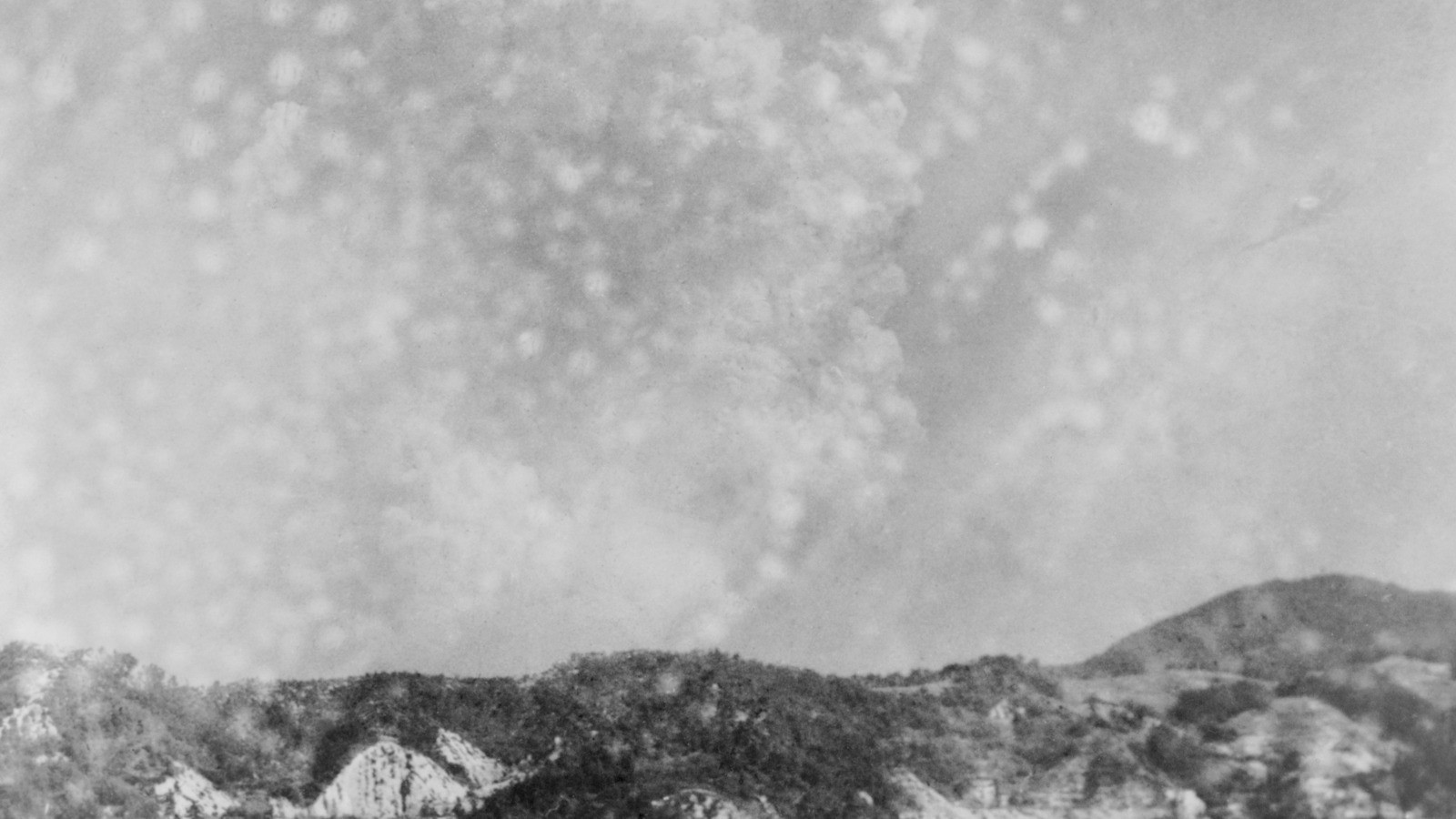
By John Means
Nobody seems to worry about The Bomb, anymore. It was the guiding light of my childhood, but today it is seldom in the news, conversations, or even apocalyptic sermons. Few persons under sixty have heard of a fallout shelter. “Fallout” is a video game, isn’t it?
In 1952 Dad bought cinder blocks, mixed mortar, and built our bomb shelter in a corner of the basement. Mom took care of bedding, candles, canned water, kitchen utensils, books, clothing. I was put in charge of stocking and rotating canned goods—Campbell’s soups, pork and beans, Vienna sausage, peaches, peanut butter—and saltines, Ritz and Cheez-Its. I was to label each item with its “put in” and “rotate” dates. Mom and Dad said this job would teach me “responsibility,” and I took care of it attentively. It led to my first confrontation with the reality of “living” in the shelter. Dad had taught me to do math in my head, and I figured food supplies would run out in ten days. What would happen then, or what it would be like to spend ten days in the dark dungeon without setting a foot outside? What about the “bathroom bucket.” It would have to be emptied outside. How would we know if we could ever go outside? What would be left outside? Responsibility was an adult characteristic, but why bother learning it for the world after The Bomb? Was I being negative or realistic? Such questions were fallout from The Bomb—the new usage for the term describing deadly post-detonation radioactive dust.
The Bomb, one day at a time, was depressing and was never going away. Wouldn’t it be better to be vaporized by the blast?
My old friend Bob called on my eightieth birthday to congratulate me, and in closing said, “Every day is a blessing.” I just swallowed and said nothing because I did not believe it, nor was it one of the Beatitudes. When you wake each day to depression hanging indoors and out like, yes, fallout particles and spend each day trying to focus your way through it, blessed is not what you feel, even if your general daily life, health, and needs are well provided for. And looking back, I think my daily teen and adult depression started with The Bomb, with our fallout shelter. Since 1952 I have always believed that depression was the only logical response to the threat of extinction by ever-hovering nuclear war—no counseling or medication for that illness. In 1953 Dad drove us to the Grand Canyon. Depression was visible even there.
Here I am, eighty, and comfortable in my chair, and The Bomb never came—correction, has yet to come. But it certainly has for those in Gaza, Lebanon, and Ukraine—any one of which could escalate to nuclear scale. Are surviving children going to grow up, sick of the fallout in their heads, wishing they had died with their friends and relatives?
Or, if a survivor wants to live and work, will he live to get revenge, or might he decide that rebuilding is the better way to go, and he works as a mason on the long project of reconstructing the apartment buildings where people lived before the bombings. And one day, as the structures on which he has been laboring for years are nearing completion, the jets come again, he sees the end, again, the return of the bombs, the sudden destruction of what he and his fellow workers have so slowly made. It will then return and return again—as it always has—for much longer than he, his children, and their children will live.
What could it all mean? Perhaps that only those days of the many little purposeful tasks of building were blessed days—readying living spaces for the secretly-projected bombs again.
The Oak Ridge Journal—Dad’s original copy—for Thursday, August 9, 1945, is headlined “Oak Ridge Attacks Japanese” and “Workers Thrill As Atomic Bomb Secret Breaks.” It had been dropped on August 6 and had been kept a secret from the population of 75,000 in the fence-enclosed, Army-guarded 59,000-acre reservation. An “official release” in the Journal reported that “the inhabitants themselves, with the exception of a few key men, knew nothing about the city’s purpose.” Dad was one of those few. He had “transferred” from the big Carbide chemicals plant in our town of South Charleston, West Virginia, moved Mom and my two teenaged sisters to Oak Ridge, organized the shift organization for the mile-long K-25 Gaseous Diffusion plant, a twenty-four-hour-a-day schedule for 12,000 workers, none of whom knew their giant plant was separating uranium-235, nor that when about fifty pounds of it were finally accumulated in separated cadmium-lead containers off of the miles-long gaseous “distillation” process and from further refinement in another plant, this “product” was secretly transported to Los Alamos, New Mexico, then across the Pacific to Tinian, then into the Enola Gay B-29 and finally to Hiroshima. This was the urgent, non-stop Manhattan Project.
Dad taught me these basic facts and other still-classified details while I was in elementary school. He told me never to repeat a word—as all Oak Ridge workers had been ordered. After the Russian atomic bomb test in 1947, it seemed logical when Civil Defense pushed for citizens to build fallout shelters. America was in constant danger
from attack, and these shelters would save us. I knew better—it all turned depressing on me.
Other kids my age worried about The Bomb, but I was “the atomic baby.” That’s what Aunt Tess called me when our family returned to West Virginia in 1947. I had been born—surprise!—in the Oak Ridge Army hospital in 1944, ten months before Hiroshima.
A “key man” in the project, Dad knew the bomb was real. For most of the population it was a news item.
It remains real and likes to stay secret. I know because I am the atomic baby.